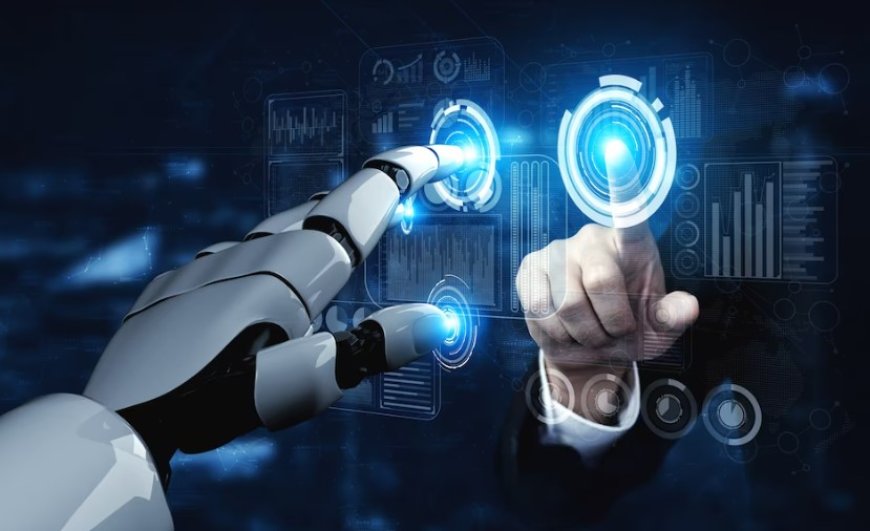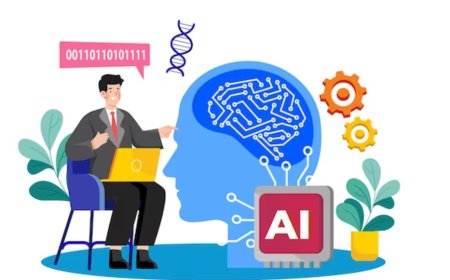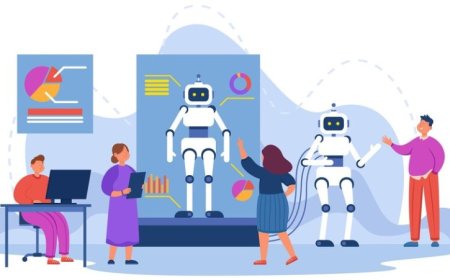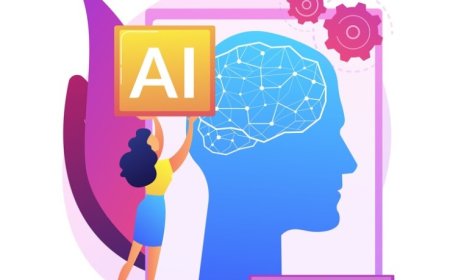The Future of AI: Unlocking a World of Possibilities
Discover the boundless potential of AI in shaping our future. Explore the limitless possibilities of Artificial Intelligence in this enlightening journey.

Artificial Intelligence (AI) has made significant advancements in recent years, transforming various industries and reshaping the way we live and work. As we look ahead to the future, the potential of AI seems limitless. In this blog, we will explore the exciting prospects and potential impacts of AI in the years to come, envisioning a world where AI plays a central role in driving innovation and enhancing human experiences.
Enhanced Machine Learning and Deep Learning
Welcome to the exciting world of machine learning algorithms and the future of artificial intelligence (AI). In this blog, we will explore how machine learning algorithms are evolving and transforming the way we analyze and interpret data. With advancements in technology and the increasing availability of data, machine learning algorithms have become more sophisticated and efficient, allowing us to unlock valuable insights and make informed decisions.
Machine learning algorithms form the backbone of AI systems by enabling computers to learn from data and improve their performance over time. These algorithms have the remarkable ability to automatically identify patterns, extract meaningful information, and make predictions or decisions without being explicitly programmed. As we delve into the topic, we will witness how machine learning algorithms continue to push the boundaries of what is possible, leading us towards a future where AI plays a pivotal role in various industries and aspects of our daily lives.
One prominent area of advancement is in deep learning techniques, particularly neural networks. Neural networks are inspired by the structure and functionality of the human brain, consisting of interconnected layers of artificial neurons that process and analyze data. These deep learning models have revolutionized the field of AI by enabling computers to develop a deeper understanding of complex patterns and relationships within data. With their ability to learn hierarchical representations, neural networks excel in tasks such as image recognition, natural language processing, and speech synthesis, among others.
Advancements in Natural Language Processing (NLP)
As we look into the future of artificial intelligence, one area that holds immense promise is the advancement of natural language processing (NLP) algorithms. These algorithms will continue to evolve, enabling machines to understand and generate human language with increasing accuracy and fluency. This progress in NLP opens up exciting possibilities for applications such as language translation, sentiment analysis, text summarization, and more.
With the development of more sophisticated NLP algorithms, conversational AI and virtual assistants will become more intuitive and capable. These intelligent systems will be able to engage in natural and context-aware conversations with users, providing personalized interactions and tailored responses. They will understand user intents, anticipate their needs, and adapt their behavior based on previous interactions, leading to more seamless and satisfying user experiences.
Expansion of AI Applications in Various Industries
The future of artificial intelligence (AI) holds immense potential across various industries, including healthcare, finance, transportation, and manufacturing. In healthcare, AI will revolutionize medical diagnostics, drug discovery, and personalized treatment plans, leading to improved patient care and outcomes. Financial services will benefit from AI-powered algorithms that aid in fraud detection, risk assessment, and investment strategies. The transportation industry will witness the rise of autonomous vehicles, transforming the way we commute and enhancing road safety and traffic efficiency.
Ethical Considerations and Responsible AI
As artificial intelligence (AI) continues to advance and permeate various aspects of our lives, it is crucial to prioritize ethical considerations. The responsible use of AI requires addressing potential biases, safeguarding privacy, and ensuring transparency and accountability in AI systems. To achieve this, ethical guidelines and regulations will be developed to guide the development, deployment, and use of AI technologies. These guidelines will emphasize fairness, transparency, and the protection of individual rights and privacy. It is important for stakeholders, including researchers, developers, policymakers, and users, to collaborate and actively participate in shaping these ethical frameworks. By doing so, we can harness the full potential of AI while upholding principles of equity, justice, and respect for human values.
Collaboration between Humans and AI
The future of AI holds great potential for collaboration between humans and machines. Instead of fearing the replacement of human workers, we should embrace the idea of AI augmenting our capabilities and working alongside us. Collaborative AI systems have the power to empower individuals and organizations, boosting productivity, fostering creativity, and revolutionizing problem-solving. By embracing this collaborative approach, we can unlock new levels of innovation and create a future where humans and AI coexist harmoniously for the benefit of society as a whole.Impact on the Job
Market and Workforce
The impact of AI on the job market will be significant, as automation takes over certain roles while creating new opportunities that require expertise in AI technologies. To adapt to this changing landscape, upskilling and reskilling programs will be crucial in equipping individuals with the necessary skills to succeed in an AI-driven world. By investing in education and training, we can ensure that individuals are prepared for the evolving job market and can take advantage of the new roles and opportunities that AI brings. It is through continuous learning and adaptability that we can harness the potential of AI to benefit individuals and society as a whole.
AI for Social Good
AI has the potential to address pressing societal challenges, ranging from improving healthcare accessibility to alleviating poverty and promoting environmental sustainability. As awareness of this potential grows, initiatives focused on leveraging AI for social good will gain momentum. By harnessing the power of AI, we can create a positive impact on a global scale, working towards a more inclusive and sustainable future. From healthcare innovations to poverty eradication strategies and environmental conservation efforts, AI can serve as a catalyst for positive change, empowering us to tackle complex social issues and create a better world for all.
Edge Computing and AI
With the increasing integration of AI into various devices and systems, the role of edge computing becomes crucial. Edge computing allows data to be processed locally, reducing latency and enabling real-time decision-making. Edge AI, in particular, empowers applications like autonomous drones, smart homes, and smart cities, as AI algorithms can run directly on edge devices. This advancement in technology brings AI closer to the source of data, enabling faster and more efficient processing, and opening up new possibilities for AI-driven applications in diverse domains. The combination of AI and edge computing holds great potential for transforming industries and enhancing our everyday lives with intelligent and responsive systems.
Explainable AI and Trustworthiness
As AI systems become increasingly complex, the demand for explainability and transparency in their decision-making processes becomes more important. The field of explainable AI focuses on developing methods and techniques to bridge the gap between the inner workings of AI models and human comprehension. By providing explanations for AI-driven decisions, we can build trust and confidence in these systems. Research and development in explainable AI aim to make AI more accessible and understandable, ensuring that humans can interpret and verify the outputs of AI algorithms. This emphasis on explainability will not only enhance accountability but also promote the responsible and ethical use of AI across various domains.
In Conclusion, The future of artificial intelligence (AI) is a realm of boundless possibilities. As AI continues to advance and permeate various aspects of our lives, its impact will be transformative and far-reaching. AI will augment human capabilities, revolutionize industries, and address societal challenges. We can expect AI to continue evolving, becoming more intelligent, efficient, and integrated into our everyday lives.




























































